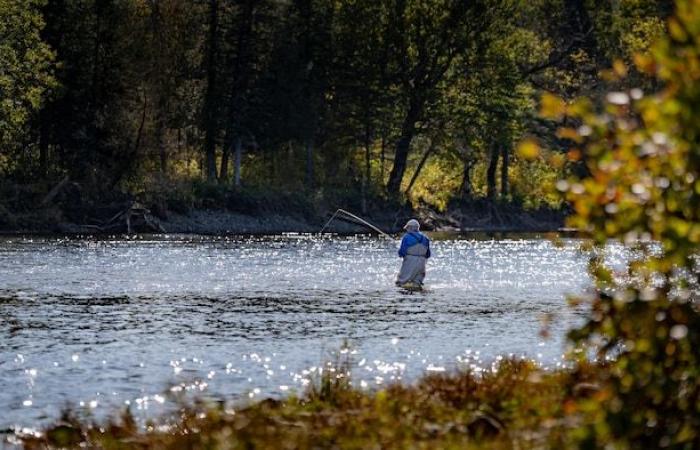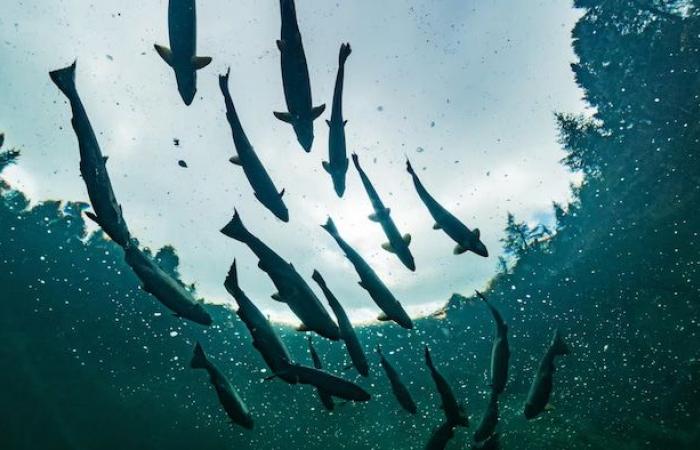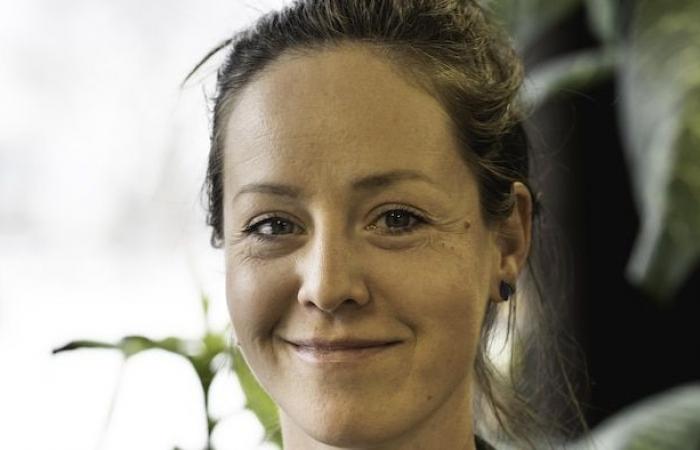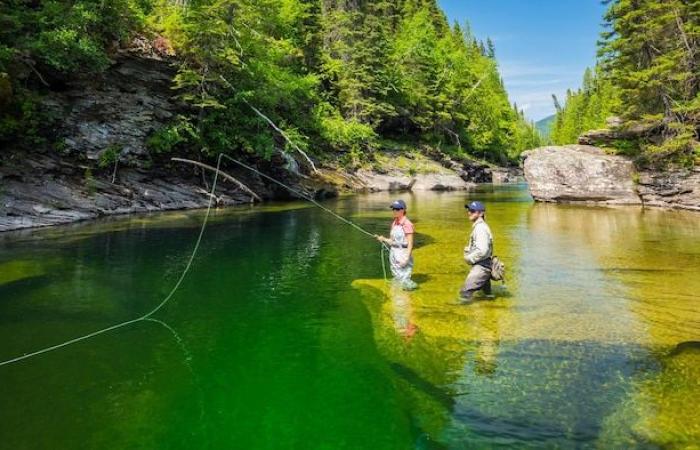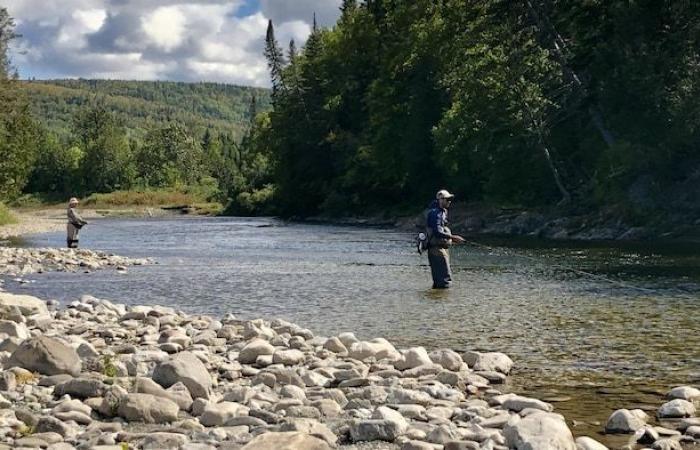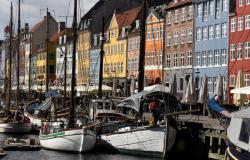The Atlantic salmon sport fishing industry as well as several conservation organizations are worried, very worried, after a year 2024 marked by a general decline in salmon migrations (runs) in the province’s waterways. Especially since the coming year does not look much more encouraging for the king of rivers.
Gathered in La Malbaie last week at the initiative of the Quebec Atlantic Salmon Federation (FQSA), around a hundred stakeholders and river managers had to face the facts: the 2024 season was difficult, even catastrophic almost everywhere in Quebec.
According to preliminary data provided by the Federation, the drop in the number of large salmon observed varies from 20% to 80% depending on the watercourse.
As for small salmon (less than 63 centimeters), the 65% drop recorded in 2023 continued in 2024. It will be at least as low as 2023
indicates the FQSAmaybe worse.
Open in full screen mode
Salmon sport fishing has slowed down considerably this year due to the low number of salmon observed and unfavorable water conditions. (Archive photo)
Photo: - / Jean-François Deschênes
The reduction in returns is widespread across the entire territory, from the Jacques-Cartier River, near Quebec, to the major rivers of Gaspésie and the Côte-Nord, via the Bas-Saint-Laurent and the Saguenay– Lac-Saint-Jean.
After such a summer, the community is mobilized, but also very worried. The level of concern is extremely high. It’s major, major, major
attests Myriam Bergeron, biologist and general director of the FQSA.
Warning signs
The summer of 2024 has confirmed what many already feared.
A first red flag
had in fact been lifted a year earlier, explains Ms. Bergeron. If the runs of large salmon were all in all normal
in 2023, the return of small salmon was much lower than in previous years.
These fish, commonly called grisles, spent their first winter at sea, near the coasts of Labrador and Greenland, before returning to fresh water for reproduction. Their weak presence during the runs in 2023 does not bode well for this summer. Unfortunately, it was confirmed.
Last year’s small salmon would have become a significant part of this year’s contingent of large salmon. But for reasons that are still difficult to understand, the cohort of salmon born in 2022 suffered a high mortality rate at sea, probably in the Gulf of St. Lawrence according to the hypotheses currently put forward.
Open in full screen mode
Some 19,750 salmon were observed in 33 rivers in the province in 2023. In 2024, returns decreased by 20 to 80% depending on the river.
Photo: Courtesy/Nick Hawkins
Worse in 2025?
The context is all the more worrying as the situation does not seem to be improving.
In addition to the decline in the number of large salmon, small salmon were not more numerous this year. This therefore means that the cohort born in 2023 seems to have suffered the same fate as that of 2022. It seems to be worse
even supports Myriam Bergeron, who is impatiently awaiting the final report from the Ministry of the Environment.
The cascade could therefore continue next year. Next year’s returns of large salmon are expected to be similar to this year.
The biologist still remains hopeful, to the extent that it is difficult to predict
beyond any doubt in what proportion of the small salmon born this season will make the return trip next year. There is, she says, natural variability
impossible to predict.
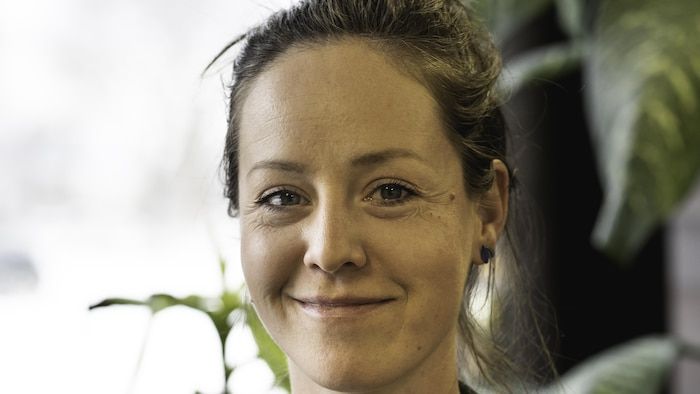
Open in full screen mode
Myriam Bergeron, biologist and general director of the FQSA, is concerned about the marked drop in the number of salmon returning to the rivers of Quebec. (Archive photo)
Photo: Courtesy: Salmon Quebec
Ms. Bergeron maintains that Quebec rivers continued to record significant downstream flows in the spring of 2024, which means that the watercourses are productive
for reproduction.
However, she is concerned about the low water levels observed in several rivers this summer, as well as the high water temperatures, forcing the salmon to retreat into cool islands rather than continuing their reproduction and feeding activities. food.
The 2025 runs will be crucial, she believes, both for Atlantic salmon and the sustainability of the organizations working for its conservation. There are a lot of things at stake.
If there is a run of small salmon [l’an prochain]it’s going to be a party in the village.
Fishing restrictions
The Ministry of the Environment already sees the blow coming.
Quebec is planning significant fishing restrictions for the 2025 season, it was announced two weeks ago. The State is thus extending and improving measures already put in place throughout the 2024 season to compensate for the low return of salmon to Quebec rivers.
Depending on the sectors and the size of the catch, release could be obligatory, while the catch limit could be restricted. Quebec admits that it no longer has a choice given the diminishing abundance of the resource.
Population monitoring in Quebec has made it possible to note this downward trend and these data encourage us to adopt a cautious approach with regard to sport fishing methods for the next season.
supports the ministry to justify itself.
The exact details will be known sometime this winter.
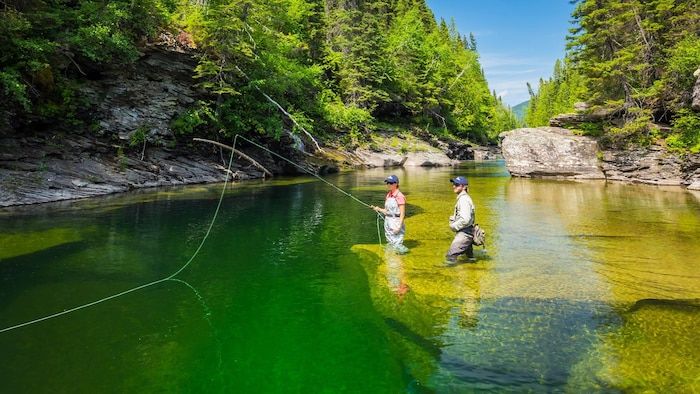
Open in full screen mode
Sport fishing has been very difficult throughout Quebec in 2024, including on waterways like the York River, in Gaspésie. (Archive photo)
Photo: Mathieu Dupuis
Serial deficits
Not only were fewer salmon returning to the rivers, sport fishermen were also less present, undoubtedly slowed down by fishing restrictions, but also showing restraint in order to protect the resource.
Spontaneous movements were also created this summer to raise awareness among their people not to subject salmon to unnecessary fishing pressure.
The FQSA reports a reduction in traffic and participation in pre-season draws of approximately 30% on average
. This drop in attendance is having an impact on the finances of FQSA members. At least 75% of river management organizations [sans but lucratif] will run a deficit in 2024, a very unusual situation.
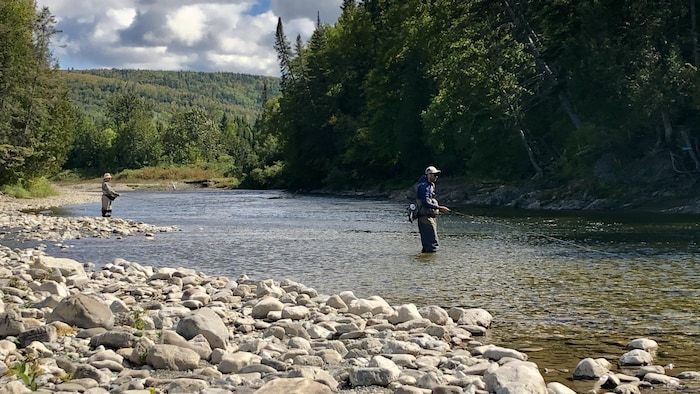
Open in full screen mode
There were fewer salmon fishermen on the rivers in the summer of 2024. (Archive photo)
Photo : - / Alain Fournier
The Federation intends to request an increase in financial assistance from the Quebec government, especially if the downward trend continues.
Ms. Bergeron points out that river managers have the mandate to protect the resource and its environment, in addition to ensuring a close partnership with the Ministry of the Environment in counting and monitoring populations.
The economic benefits of salmon sport fishing are estimated, on average, at $50 million per year.

